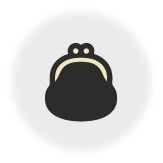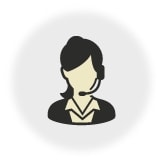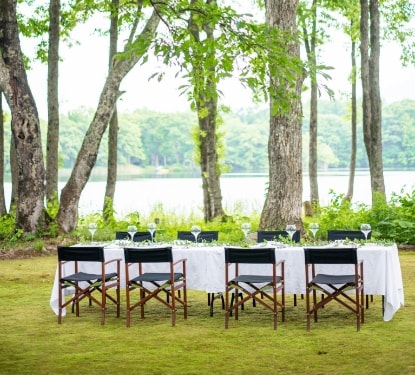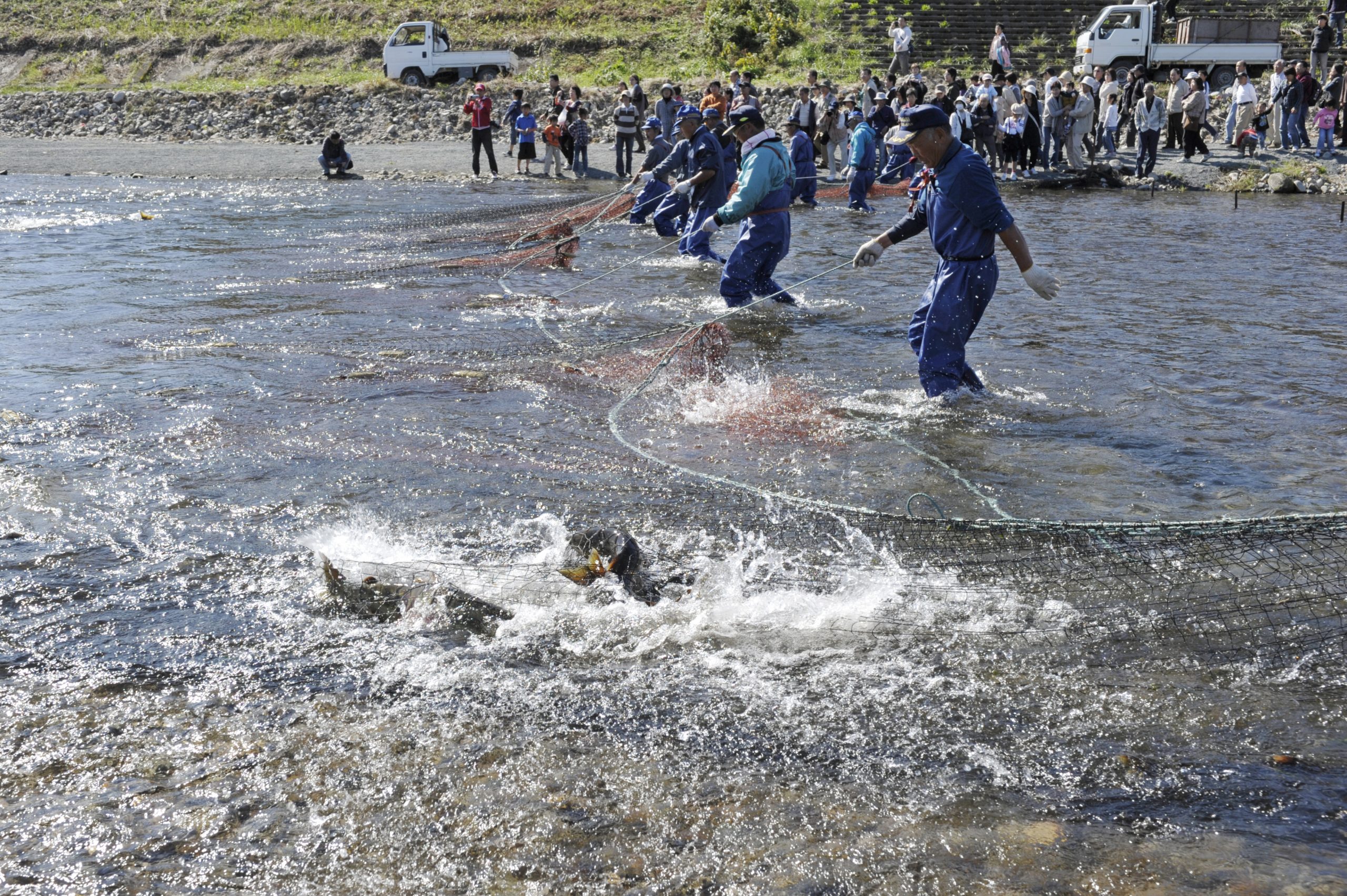
The Kidogawa River – that starts in the Abukuma mountain range and flows into the Pacific Ocean at the town of Naraha – is one of the few rivers in Japan where salmon swim upstream. After a break in operations after the 2011 disaster, the Kidogawa Fishery Cooperative restarted in force in 2015. Join this edition of FoodCamp, to experience the circle of life, through the spirit of Kentaro Suzuki of the Kidogawa Fishery Cooperative, hoping to restore the vitality of Kidogawa River. The meal will be provided by Chef Fukushima of Cross Wonder Dining, making for a unique chance to celebrate the revival of Kidogawa River’s fishing industry!
Kidogawa Fishery Cooperative - http://www.kidogawa.jp/
CROSS WONDER DINING - https://www.cross-wonder-dining.com
Report
Seeing salmon swimming upstream, egg collection and fertilization
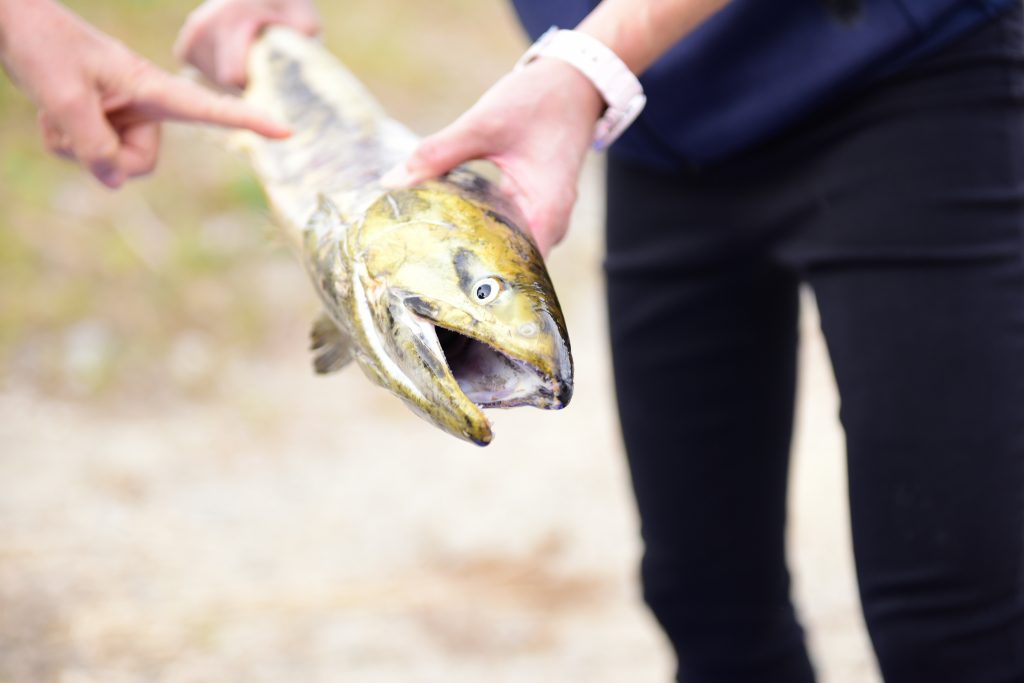
During the season for salmon fishing at Kidogawa River, a net is put out every day at 11am. In recent years the catches have been poor, but this year especially, in the few days before the FoodCamp tour, there were hardly any salmon to be found. But on the day of FoodCamp, a little miracle occurred (FoodCamp guests really are lucky!).
When Kentaro Suzuki of the Kidogawa Fishery Cooperative opened up the salmon trap, he was surprised to find several in there! Not only that, he also saw a number of salmon swimming on the river’s surface.
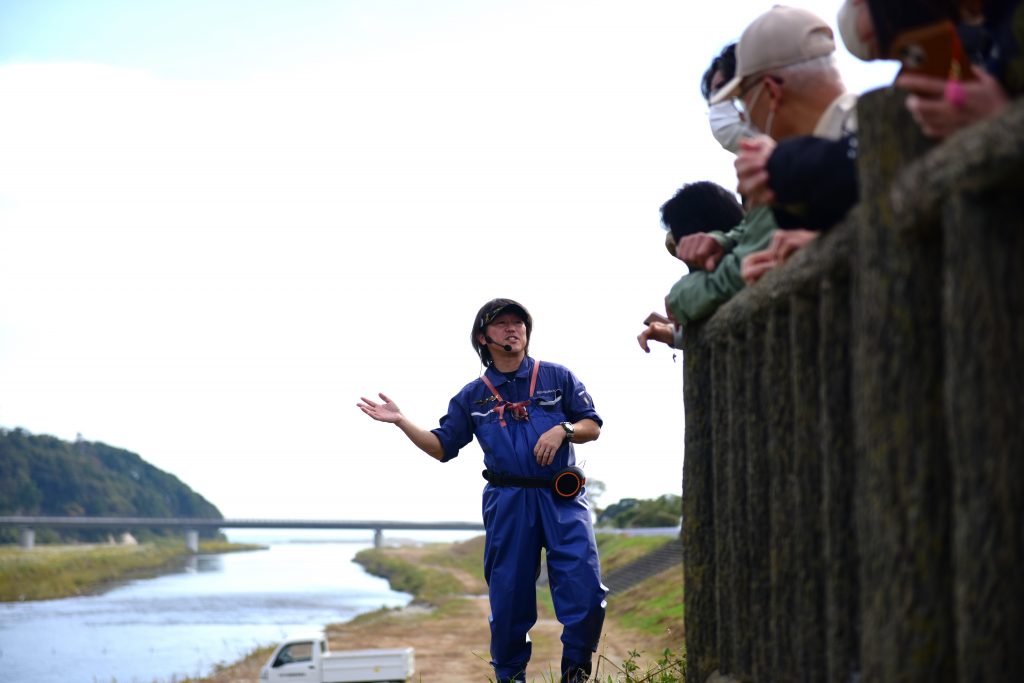
When the FoodCamp guests arrived, Suzuki first led them to the outlook-post. He started telling the guests all about salmon fishing, while the guests enjoyed the view over the Kidogawa River, all the way to the sea. Suzuki told about the changes salmon fishing in the area underwent after the 2011 disaster, the Act on the Protection of Marine Resources, and the mystery of salmon always returning to the river where they were born.
Next, Suzuki caught a salmon from the trap by himself. Casually walking through the water, he came back with one male salmon, and was met with an applause from the guests.
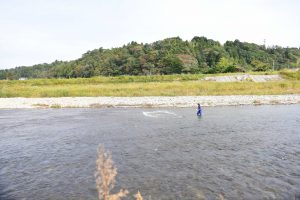
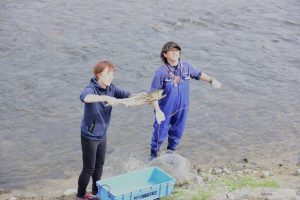
Next, he got a female from the salmon trap, and took them to the salmon hatchery, where he showed the whole process from egg collection to fertilization. Cutting open the belly of the female salmon, the eggs came rolling out like tiny little gems, after which Suzuki added the sperm from the male salmon. Putting them underwater, the fertilization process begins. The guests were given the rare opportunity of putting the fertilized eggs into the water.
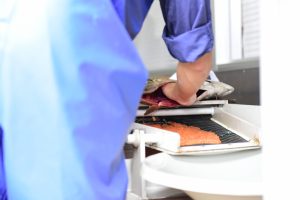
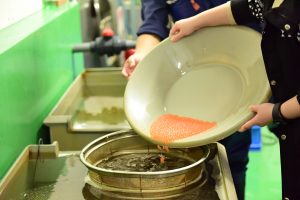
After fertilization, the eggs are allowed to develop in peace underwater, and after they’ve hatched the little hatchlings are released into the river around March. Salmon make their way by the Sea of Okhotsk to the Bering Sea and the Gulf of Alaska, where they eat their fill, before finally coming back to the Kidogawa River in about four to seven years. This led many of the guests to conclude: “In that case, we’ll just have to come back in four years to see them again.”
Riverside-dining: Enjoying precious salmon and their eggs
After this rare experience, it was time to head to the dining area, set up along the river. Especially for a November-day, it was very calm and pleasant by the river. Even for the coastal area of Fukushima, the weather was almost unseasonally good. Although tents were set up to shield the guests from the hot sun, every once in a while clouds appeared, and with very little wind, it was the perfect FoodCamp weather.
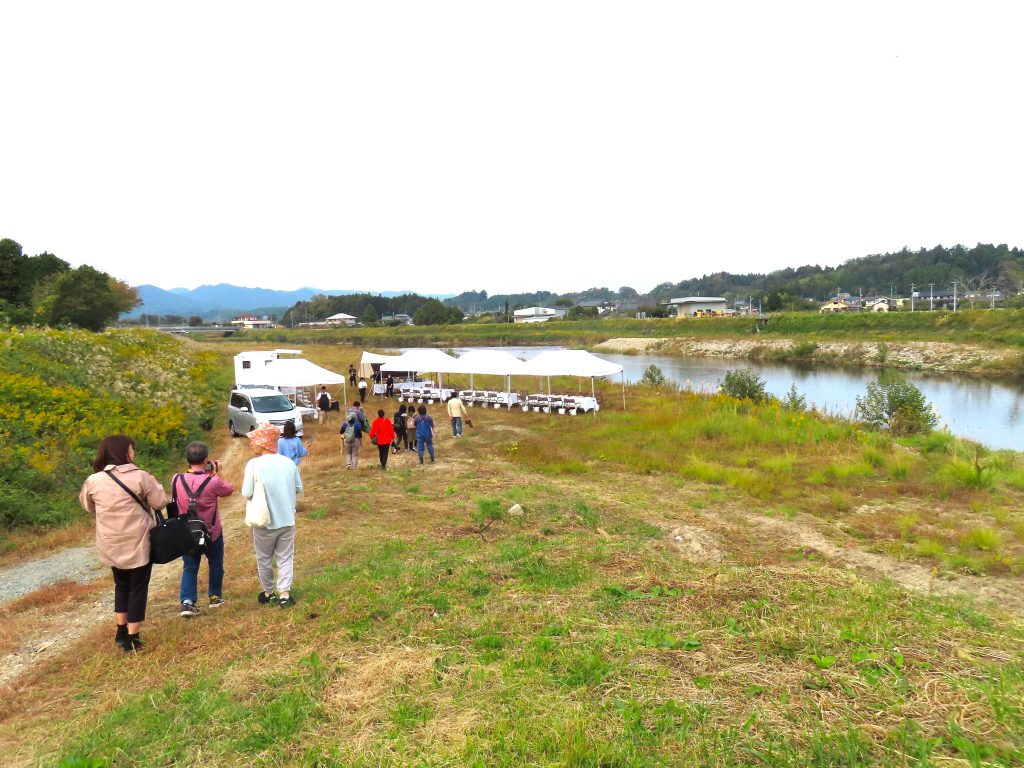 At every edition of FoodCamp we try to provide a special first drink to go with the theme of the tour. This time, it was a Yuzu Squash, made from the yuzu fruit that Naraha is well known for. It was well-received, not in the least by Kentaro Suzuki, who joined the guests at the dining table.
At every edition of FoodCamp we try to provide a special first drink to go with the theme of the tour. This time, it was a Yuzu Squash, made from the yuzu fruit that Naraha is well known for. It was well-received, not in the least by Kentaro Suzuki, who joined the guests at the dining table.
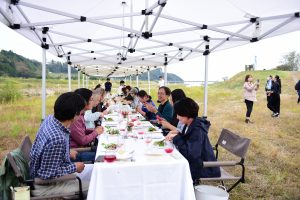
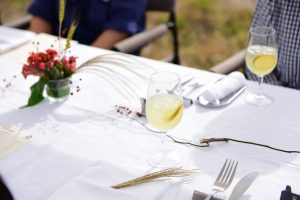
The menu for the day was provided by Chef Fukushima from Cross Wonder Dining in Yotsukura (Iwaki City). As always it was served warm from our trusty food truck.
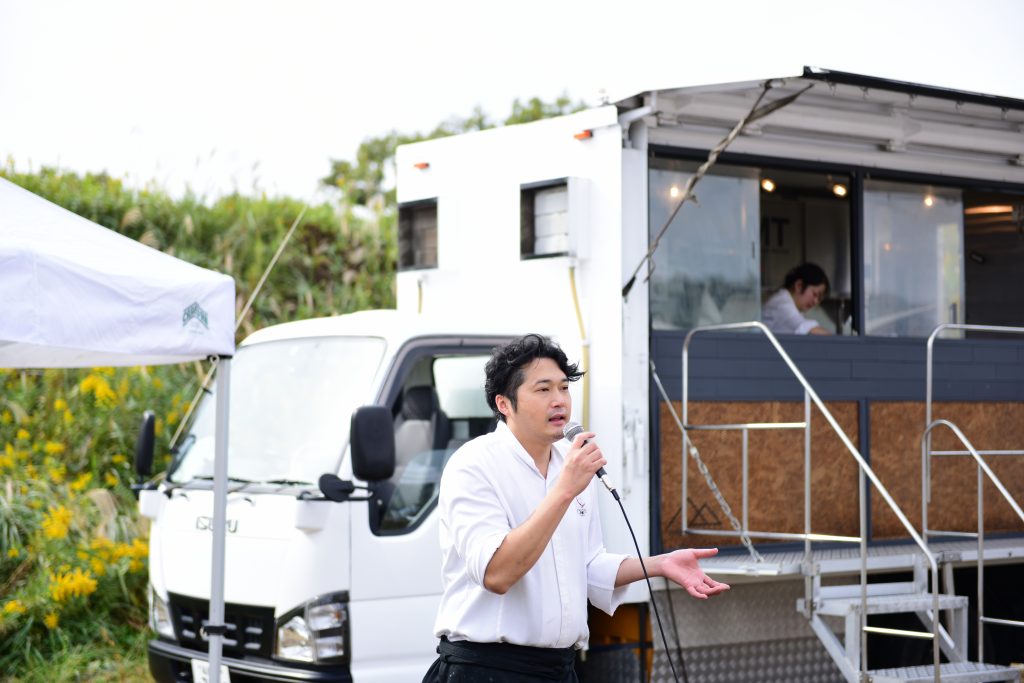
The precious salmon was served as a rare salmon roast, and the eggs were served in Ochazuke (rice in green tea). Nowadays, salmon eggs are a precious delicacy, but in years past the egg-production was so bountiful, it led to the famous Japanese dish TKG (rice served with a topping of (raw) egg) to be served here with salmon- rather than chicken eggs: the Naraha TKG. As Suzuki explained this, the guests could eat their fill of wonderful salmon eggs, while dreaming of the salmon returning to their river of birth.
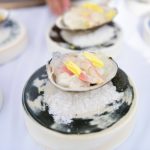
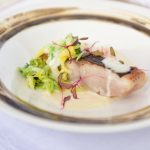
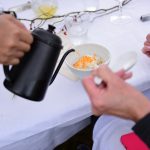
Also, the starter (Hokkaido Clams) as well as the salmon roast were served on plates made by the Obori Soma-yaki pottery kiln Tokichirogama in Iwaki City’s Yotsukura-area. These plates were made special for FoodCamp, thanks to our continued collaboration.
t was a very special day for the guests, as well as for the chef and FoodCamp staff, which left all of us to hope for a bright future and the safe return of the salmon to Kidogawa. We hope you will continue to support us until that day comes!
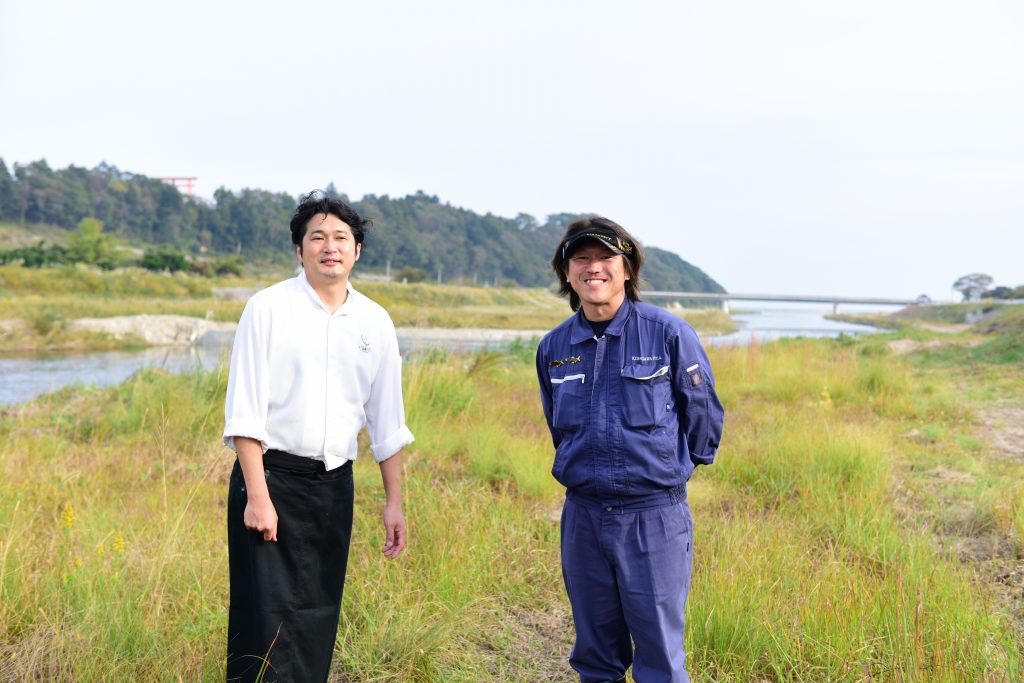
Highlights
Cast
- Bringing salmon back to Kidogawa River Hatchery Head, Kidogawa Fishing Coop Kentaro SUZUKI
- One of the few rivers in Japan where salmon swim upstream, the Kidogawa flows into the Pacific Ocean at the town of Naraha. The Kidogawa Fishery Cooperative resumed operations in 2015. After release, salmon return after 4 or 5 years. Kentaro Suzuki is dedicated to bring life back to Kidogawa River.
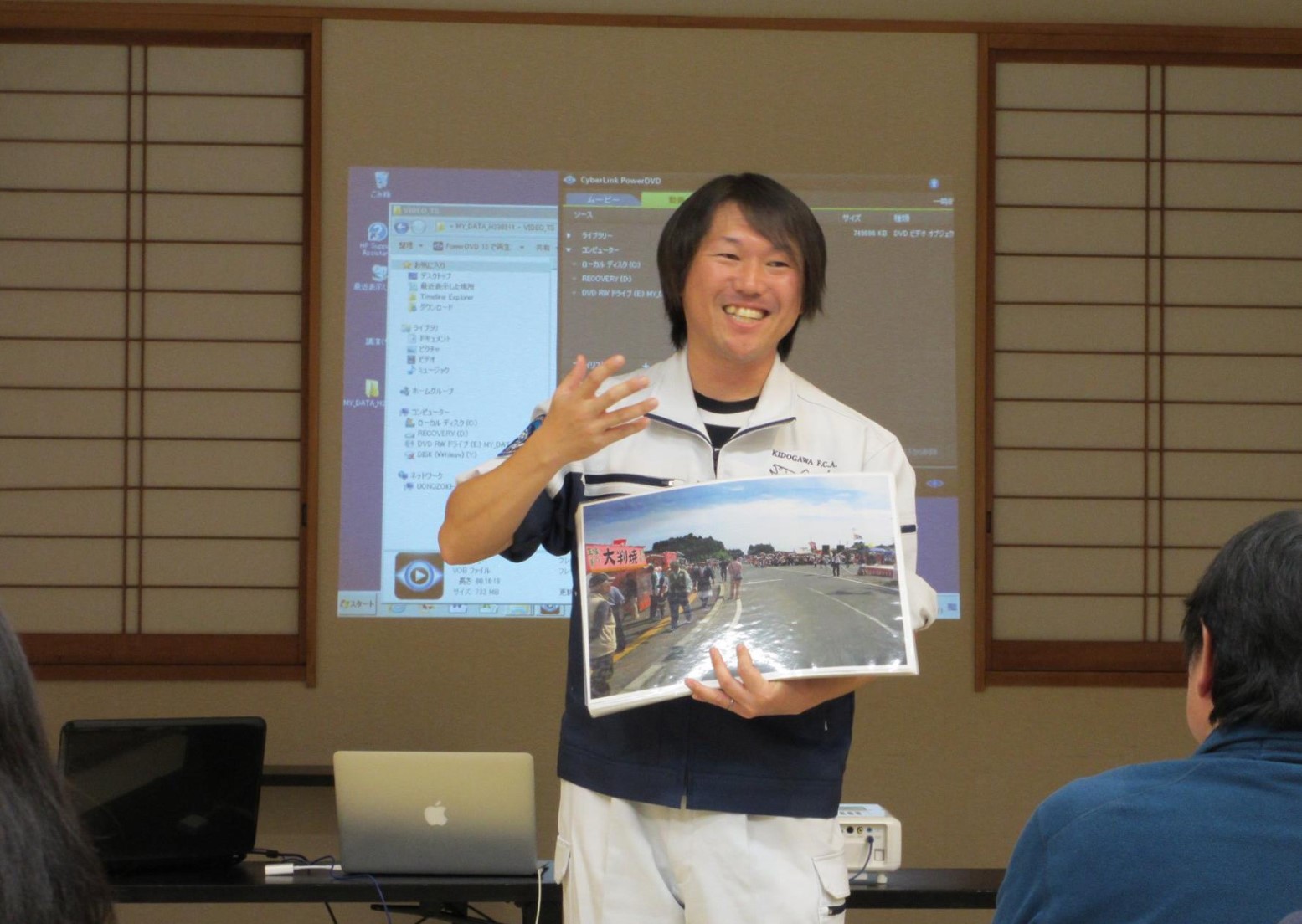
- Bringing out the richness of Hamadoori Cross Wonder Dining Nobuyuki FUKUSHIMA
- Chef Fukushima is from Miyazaki Prefecture, but moved to Iwaki for the opening of restaurant Cross Wonder Dining. Working with Hamadori's rich products brings out the best in him. This FoodCamp will be his first time preparing salmon from Kidogawa, adding another layer of excitement!
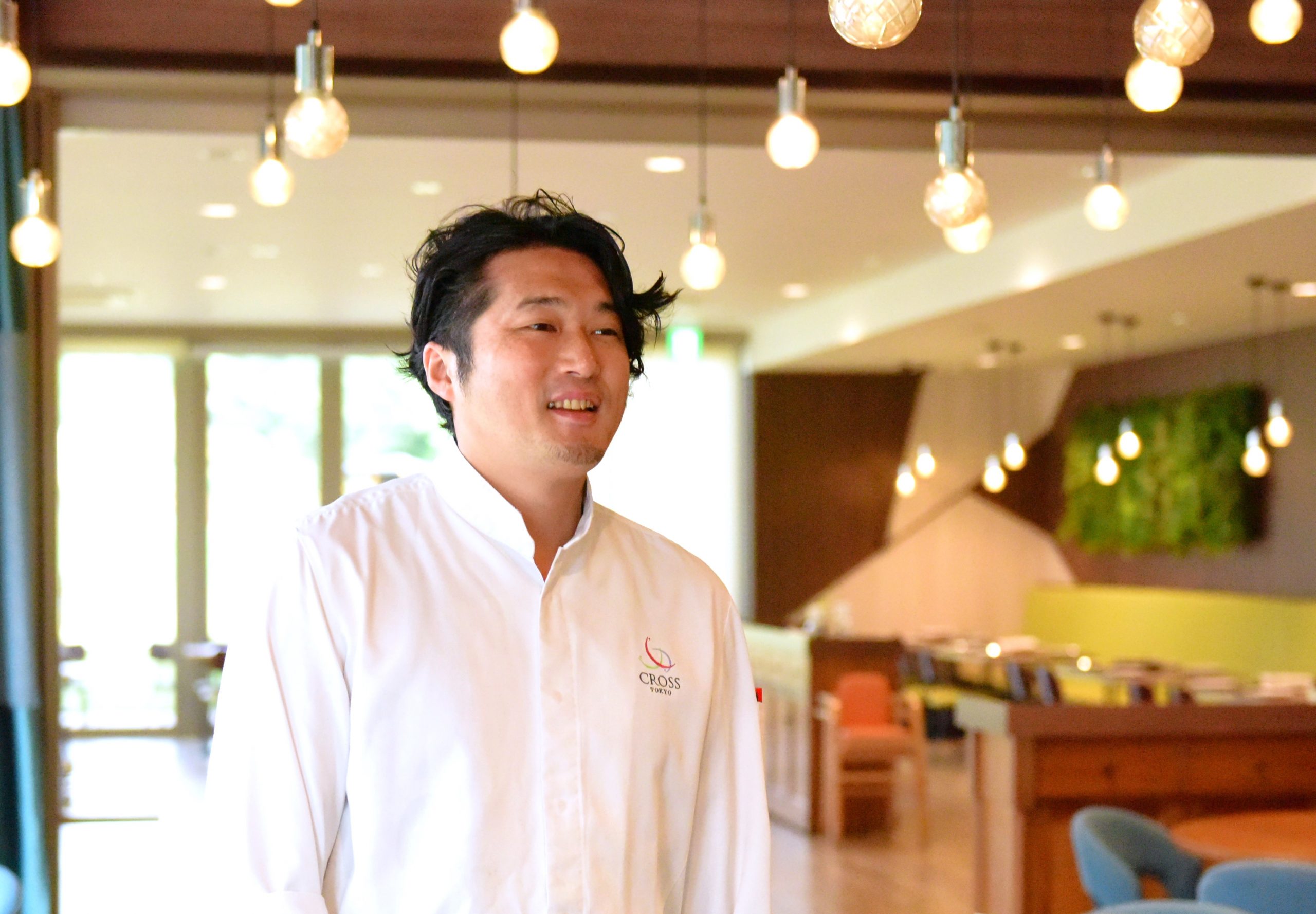
Tour details
- Date(s)
- November 4 (Sat.)
- Fee
-
*same rate applies for children/participants travelling to the venue directly with their own vehicle.Per person ¥18,700 Same price applies for children/participants arriving by own transportation - What to wear/bring
- ・This tour takes place outdoors. In case of clear skies, please prepare a hat or cap to protect you from the sunlight.
・Please wear comfortable shoes and clothing.
・In order to prevent the further spread of COVID-19, please wear a mask. - Conditions of Participation
- Participation open to everyone over elementary school-age, and able to participate on their own (no need for accompaniment by a care helper, or with permission from a doctor). Same price for adults and children.
- Operating Company
- Koriyama Kanko Kotsu K.K.
- Tour Operator
- Magonote Travel's own staff will accompany the tour.
- Payment Method
- Please refer to "How To Apply" for more information.
- Travel Insurance
- Travel insurance is required for all tours, in case of accidents and emergencies. The insurance fee is included in the price. For this reason, we need to ask for your date of birth.
- Cancellation Fee
-
The following cancellation fees will be charged for tours with lodging and tickets: 20 to 8 days in advance: 20%, 7 to 2 days in advance: 30%, the day before the tour: 40%, on the scheduled date before the tour starts: 50%, no-show without notice: 100%.
For one-day tours, the following fees will be charged retroactively from the day before the start of the tour: 10 to 8 days in advance: 20%, 7 to 2 days in advance: 30%, 1 day in advance: 40%, on the scheduled date before the tour starts: 50%, no-show without notice: 100%. - In case of bad weather
- The tour will not be cancelled in case of bad weather. However, in case the tour has to be cancelled due to a natural disaster, you will be informed one day before the tour. In this case, you will receive a full refund.
- Minimum number of participants
- If there are fewer than 15 participants the tour will be cancelled. In such case we will inform you at least 4 days in advance.
- Terms and Conditions of Travel
- Please visit the ‘Terms and Conditions of Travel'-page.
- Other points of caution
- In order to prevent the spread of COVID-19, we ask all guests to fill in a health-check form beforehand. We will send you the details after we have received your application. Thank you in advance for your cooperation.



